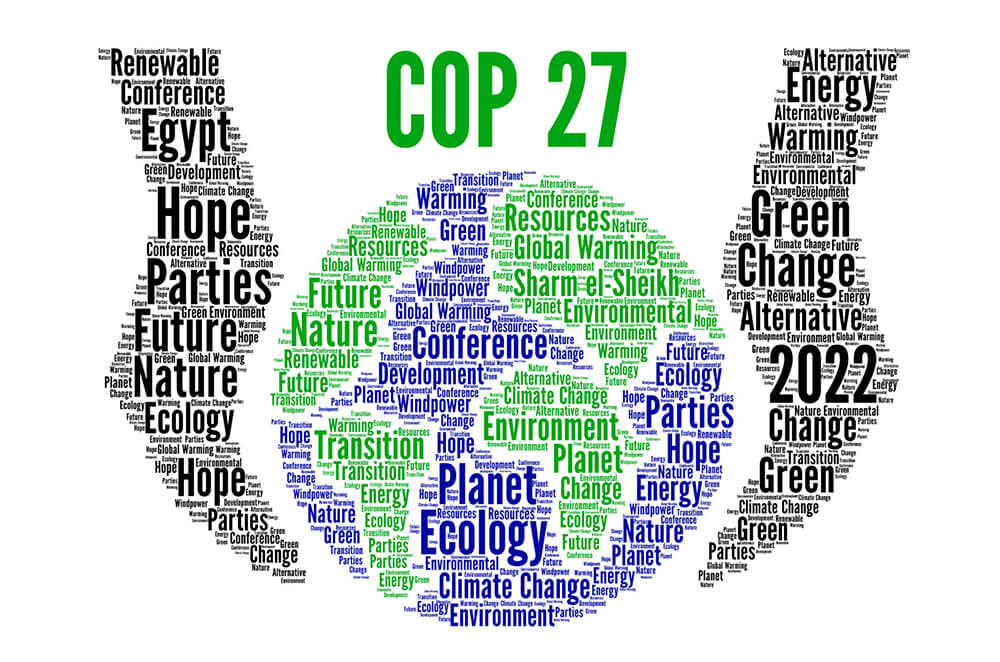
COP27: Accomplishments and Pending Issues
Fecha: 09/01/2023
“This Conference has taken an important step towards justice.” With this remark UN Secretary General António Guterres summarized what has largely been considered the great achievement of the Climate Change Conference (COP27), which was held in November in Sharm el-Sheikh, Egypt.
Guterres was referring to the agreement by participating countries to create a loss and damage fund “to compensate vulnerable nations hit hard by climate disasters.” This funding mechanism has been in the works for decades, with developing countries strongly advocating for its immediate creation.
Their main argument has been that though their contribution to climate change is very low (estimated at around 5%), they are the most impacted by the consequences of the climate crisis. These consequences range from population displacement to loss of biodiversity and economic decline, in addition to the millions of deaths linked to fires, floodings, droughts and extreme temperatures.
The V20
In spite of this important step forward, as the Secretary General called it, there are still details to figure out; from exactly how the fund will work to, and rather importantly, which countries will benefit from it. It is assumed that the beneficiaries will be amongst the members of the Vulnerable Group of Twenty (V20).
This group was established in 2015 in Lima, Peru. Today 58 nations from Africa and the Middle East, Asia-Pacific and Latin America and the Caribbean are part of the V20. Their joint population is calculated to be around 1.5 billion people, and a vast number of them are suffering, or will suffer, because of climate change.
Causes and Consequences
In fact, “unabated climate change will cause 3.4 million deaths per year by the end of the Century”, according to new data presented to COP27. Therefore, and in spite of the importance of addressing loss and damages, it is equally essential to take precise steps in slowing the climate crisis –or else we will never break the cycle.
“If we don’t resolve the base issue, which is emissions, then soon we will have to call this fund ‘the fund for the end of the world’,” says Manuel Pulgar-Vidal, global leader of Climate & Energy at WWF.
Unfortunately, one of the pending issues of this year’s conference was precisely establishing concrete measures to progressively eliminate fossil fuels from the global economy and to limit global temperature rise to 1.5 degrees Celsius above pre-industrial levels.
But if anything became clear at COP27 it is that applying global, public and constant pressure, like the vulnerable countries have done over the years, can in fact impact the decisions made at the Conference.
